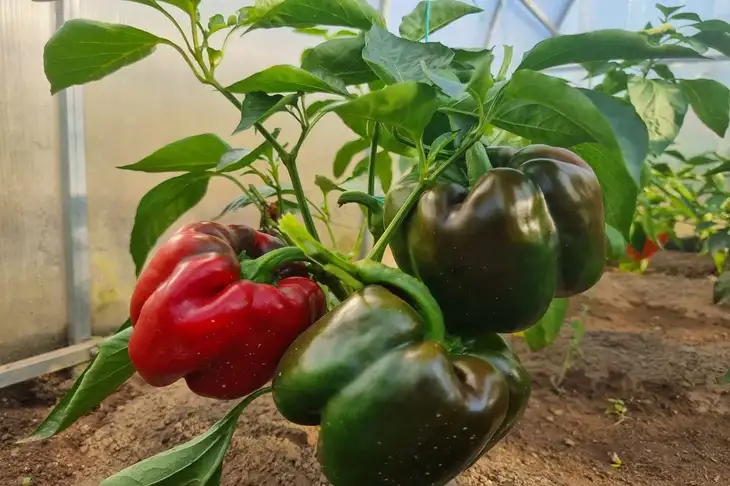The correct placement of plants in the garden bed plays an important role in obtaining a good harvest.
Pepper, like any other crop, has its own preferences and incompatibilities with other plants. Knowing these features will help create favorable conditions for its growth and development.
Basil – protection from pests
Basil is a great companion for peppers. Its aroma repels many pests, such as aphids, whiteflies and spider mites.
In addition, basil improves the taste and aroma of peppers. Planting basil next to peppers helps to form healthier and stronger plants.
Marigolds are a natural insecticide
Marigolds are also useful neighbors for peppers. Their roots secrete substances that repel nematodes, dangerous soil pests. Marigolds also attract beneficial insects, such as ladybugs, which feed on aphids. The bright flowers of marigolds will decorate the garden bed.

Carrots - protection against aphids
Carrots can help protect peppers from aphids. The aroma of carrots repels these pests.
Planting carrots next to peppers creates a natural barrier to aphids, reducing the risk of them spreading to the peppers. Carrots also improve the soil, making it looser and more fertile.
Onions and garlic – repelling fungal diseases
Onions and garlic release phytoncides that suppress the development of fungal diseases. Planting these crops next to peppers helps protect them from various diseases, such as late blight and gray mold. Onions and garlic also repel some pests.
Parsley - bait for beneficial insects
Parsley attracts beneficial insects such as hoverflies and lacewings, which feed on aphids and other pests. Planting parsley next to peppers promotes biological plant protection. Parsley also improves the soil and enriches it with useful elements.
Spinach - soil enrichment
Spinach enriches the soil with nitrogen, which is necessary for the growth of peppers. Planting spinach next to peppers improves their nutrition and promotes the formation of stronger and healthier plants. Spinach also protects the soil from overheating and moisture evaporation.
Calendula – Attracting Pollinators
Calendula attracts bees and other pollinating insects, which increases the yield of peppers. Bright calendula flowers also repel some pests. Planting calendula next to peppers promotes better pollination and fruit formation.
Cucumber and zucchini - a neutral neighborhood
Cucumber and zucchini are considered neutral neighbors for pepper. They do not have either a positive or negative effect on its growth and development. When planting pepper next to cucumber or zucchini, you should keep a sufficient distance between the plants so that they do not interfere with each other.
Plants to Avoid
It is not recommended to plant peppers next to fennel, dill and kohlrabi. These plants can inhibit the growth and development of peppers. You should also avoid planting peppers next to tomatoes and potatoes, as they are susceptible to common diseases.








